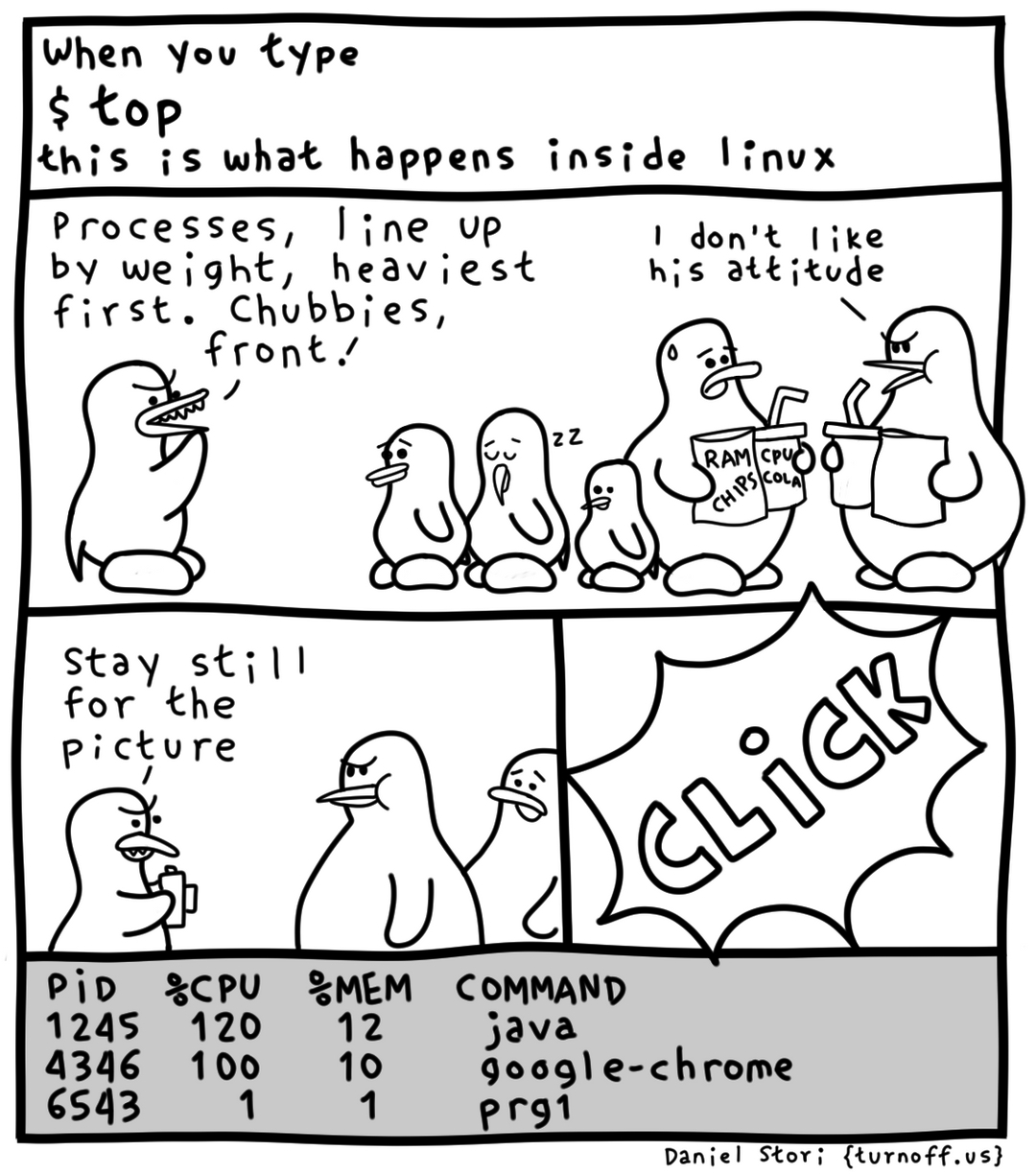this post was submitted on 16 Feb 2024
996 points (99.2% liked)
linuxmemes
22204 readers
1490 users here now
Hint: :q!
Sister communities:
Community rules (click to expand)
1. Follow the site-wide rules
- Instance-wide TOS: https://legal.lemmy.world/tos/
- Lemmy code of conduct: https://join-lemmy.org/docs/code_of_conduct.html
2. Be civil
- Understand the difference between a joke and an insult.
- Do not harrass or attack users for any reason. This includes using blanket terms, like "every user of thing".
- Don't get baited into back-and-forth insults. We are not animals.
- Leave remarks of "peasantry" to the PCMR community. If you dislike an OS/service/application, attack the thing you dislike, not the individuals who use it. Some people may not have a choice.
- Bigotry will not be tolerated.
- These rules are somewhat loosened when the subject is a public figure. Still, do not attack their person or incite harrassment.
3. Post Linux-related content
- Including Unix and BSD.
- Non-Linux content is acceptable as long as it makes a reference to Linux. For example, the poorly made mockery of
sudoin Windows. - No porn. Even if you watch it on a Linux machine.
4. No recent reposts
- Everybody uses Arch btw, can't quit Vim, <loves/tolerates/hates> systemd, and wants to interject for a moment. You can stop now.
5. 🇬🇧 Language/язык/Sprache
- This is primarily an English-speaking community. 🇬🇧🇦🇺🇺🇸
- Comments written in other languages are allowed.
- The substance of a post should be comprehensible for people who only speak English.
- Titles and post bodies written in other languages will be allowed, but only as long as the above rule is observed.
Please report posts and comments that break these rules!
Important: never execute code or follow advice that you don't understand or can't verify, especially here. The word of the day is credibility. This is a meme community -- even the most helpful comments might just be shitposts that can damage your system. Be aware, be smart, don't remove France.
founded 2 years ago
MODERATORS
you are viewing a single comment's thread
view the rest of the comments
view the rest of the comments

Hmm. It's been a hot minute (ok 30 years) since I learned about this stuff and I don't know how it works in Linux in excruciating detail. Just the general idea.
So I would be curious to know if I am off base.. but I would guess that, since the kernel is in charge of memory allocation, memory mapping, shared libraries, shared memory, and virtualization, that it simply keeps track of all the associated info.
Info includes the virtual memory pages it allocates to a process, which of those pages is mapped to physical memory vs swap, the working set size, mapping of shared memory into process virtual memory, and the memory the kernel has reserved for shared libraries.
I don't think it is necessary to find out how much is "technically in use" by a process. That seems philosophical.
The job of the OS is all just resource management and whether the systems available physical memory is used up or not. Because if the system spends too much time swapping memory pages in and out, it slows down everything. Shared memory is accounted for correctly in managing all that.
Maybe I am not understanding your point, but the file system is a different resource than memory so a file system cache (like a browser used) has zero impact on or relevance to memory usage as far as resource management goes.